Would it surprise you to know that not all cases of hypothyroidism or low thyroid function are permanent?
This is exactly the case with certain nutrient deficiencies.
Nutrient deficiencies play an important role in helping your thyroid to function by improving how well your thyroid works, whether or not you can create thyroid hormone, how thyroid works on and in your cells, and much more.
And guess what? If you don’t have enough of them your thyroid may suffer.
But here’s the kicker:
Replacing these lost nutrients may restore your thyroid to its normal function.
Which is why every thyroid patient should be aware of the nutrient deficiencies we are about to discuss:
#1. Zinc
First on the list, not necessarily in order of importance, is zinc.
Zinc makes the list because it is required for thyroid conversion as well as immune health.
If you don’t have enough zinc then your body will have difficulty in activating thyroid hormone from the inactive form T4 to the active form T3 (1).
This entire process is known as thyroid conversion and it’s the most significant source of T3 hormone in the body (2).
Because T3 is much more powerful than T4 (3) thyroid hormone at doing its job, maintaining your T3 level is always a priority as a thyroid patient.
Zinc deficiency is sufficient by itself to result in low thyroid lab tests which can be reversed if zinc levels are replaced (4).
While we don’t have studies in younger populations, the physiology should still be the same which means that zinc deficiency is still probably just as important for all age ranges.
The connection between zinc deficiency and low T3 is quite obvious and important, the connection between zinc and your immune system and how that relates to your thyroid is a little bit more subtle.
You should care a lot about immune function if you have a thyroid problem because the #1 cause of low thyroid function in the United States is an autoimmune disease of the thyroid gland known as Hashimoto’s thyroiditis (5).
Anything that puts your immune system at risk may increase your chance of developing autoimmune syndromes and would, therefore, be unwise.
This connection is not as strong as the connection between zinc and thyroid conversion but it’s still important.
According to some studies (6), hypothyroid patients are at more risk of developing zinc deficiency which means if you are reading this there is also a good chance your zinc levels may be less than ideal.
If you decide that you want to get more zinc into your body to support your thyroid then you can do that in a few different ways.
The first would be through your diet.
You can consume more zinc naturally by eating the following foods:
- Legumes
- Seeds
- Nuts
- Dairy
- Eggs
- Whole grains
These food sources have naturally high levels of zinc and can help to alleviate zinc deficiency if consumed regularly.
If you prefer, you can also replace low zinc levels with over-the-counter supplements.
It may be better to use zinc supplements to replace low zinc levels to ensure rapid repletion of your levels but the choice is up to you.
If you opt to use a zinc supplement then look for zinc in this form and around this dose.
The body can only absorb around 10mg of zinc (7) in one sitting so using higher doses is not often helpful and may cause stomach or digestion issues.
#2. Iron
Iron is required by your thyroid because it is required by an enzyme found within the thyroid gland (8).
This enzyme, thyroid peroxidase, is necessary for your body to create or to form thyroid hormone inside of your thyroid gland.
If you do not have enough iron, or if you are iron deficient, then your body will be less efficient at producing thyroid hormone than it would be otherwise.
It’s not as if your thyroid hormone production will stop if you have iron deficiency but your body will be less efficient at producing it.
If you don’t produce enough thyroid hormone then you will feel hypothyroid.
It’s important to remember that iron supplements should not be taken unless they are absolutely necessary.
Other supplements such as zinc, selenium, and even iodine, can be used without testing your levels.
But iron does not fit into that category.
Iron should only be used if you have a documented iron deficiency and you can check for iron deficiency by ordering some simple tests which we will mention in a minute.

You might be asking yourself, doesn’t it make sense to check for all nutrients before using them?
That would make sense in a perfect world but we don’t live in that perfect world.
Instead, we live in a world where the tests that assess your nutrient status are not always accurate.
So, it doesn’t always make sense to supplement with nutrients based on inaccurate tests.
Fortunately, iron testing is quite accurate so you can go about using it to determine if you need to supplement with iron.
To check your iron status you will need to order the following tests (9):
- Ferritin
- Serum iron
- TIBC (total iron binding capacity)
- % saturation
Standard doctors are pretty good at diagnosing iron deficiency so if you order these there is a good chance your doctor will know what they mean (unlike many thyroid lab tests!).
If you find that your iron levels are low or that your ferritin level is suboptimal then it would be a good idea to consider iron supplementation.
Women are at a higher risk of developing iron deficiency (10) because of their menstrual cycle.
Iron levels are depleted with any sort of blood loss and this includes blood loss from the menstrual cycle.
Iron deficiency can become severe based on the flow of your menstrual cycle and how much iron you are consuming/replacing.
In addition to women, thyroid patients are also at increased risk for developing iron deficiency.
This occurs because optimal thyroid hormone is required for iron absorption in the gut.
In settings of low thyroid function, iron is not absorbed as well as it should be which leads to iron deficiency.
This iron deficiency then exacerbates thyroid function which leads to worse absorption of iron in the gut and so on.
If you have thyroid problems then I recommend that you consume the following foods to ensure that you are getting enough iron from your diet:
- Organ meats
- Shellfish
- Red meats
- Legumes (if tolerated)
- Spinach
If you find that you are deficient in iron then using iron supplements makes sense to get your levels back up.
Once you optimize your thyroid and your iron, you shouldn’t need to continue to use iron supplements to make sure you keep an eye on your iron lab tests.
#3. Iodine
Iodine is probably the most well-known of all of the nutrients on this list.
Without enough iodine, your body can’t put thyroid hormones together.
Iodine deficiency used to be the most common cause of hypothyroidism until foods were fortified with iodine (11) to ensure that the general population was getting enough.
It was also the most common reversible cause of hypothyroidism for quite a while.
While we don’t see huge numbers of people who are iodine deficient right now, the number of people with iodine deficiency in the developed world appears to be increasing.
I’ve noticed several trends that contribute to an uptick in iodine deficiency:
#1. The avoidance of salt due to fear of high blood pressure (12).
#2. The avoidance of iodine (in general) by thyroid patients who are afraid that iodine is dangerous.
#3. The replacing of iodized salt with Himalayan pink salt and Celtic sea salt (gourmet salt blends).
These trends all result in one thing:
An increasing number of people not consuming enough iodine.
This is a very concerning trend, especially among thyroid patients because iodine is REQUIRED for thyroid function!
In addition, humans do not have the ability to create iodine on their own which means they MUST get it from their diet.
There is a lot of controversy surrounding the use of iodine in patients with Hashimoto’s and thyroid disease and I’ve spent a lot of time debunking these claims in posts such as these.
What you need to know here is that iodine is essential for thyroid patients, regardless of thyroid status, and many people are not getting enough.
There are two main ways to get iodine:
From your food or from supplements.
The following food sources are high in iodine and can be consumed if you prefer to get your iodine from food instead of supplements:
- Seaweed (1 gram contains between 16 and 1984mcg of iodine)
- Organ meats (2.5 ounces contain 32mcg of iodine)
- Cod (3 oz contains 99mcg of iodine)
- Salt (if iodized, 1.5 gram contains 71mcg of iodine)
- Shrimp (3oz contains 35mcg of iodine)
- Tuna (3 oz contains 17mcg of iodine)
- Eggs (1 large egg contains 24 mcg of iodine)
- Yogurt (1 cup contains 74mcg of iodine)
- Milk (1 cup contains 94 mcg of iodine)
Even though you can get iodine from your diet, it may be better to get your iodine from supplements, and here’s why:
When you consume a can of tuna fish the content of iodine can vary based on where the fish was caught, what type of tuna it came from, and so on.
The result is that the iodine content in one can of tuna may vary from can to can and from manufacturer to manufacturer.
When you consume a supplement that says it has 100mcg of iodine, you know that you are getting 100mcg of iodine.
It doesn’t matter if you get supplements from different brands, the units are standardized and the dose has been tested.
When it comes to supplementing with iodine, it’s often much safer to know exactly how much you are getting.
That way you can tweak your dose upward or downward as necessary and you can avoid the potential pitfalls and side effects associated with using the wrong dose of iodine.
#4. Selenium
Selenium is important for thyroid function because it is required for thyroid conversion (13) as well as glutathione production (14) in the thyroid gland.
We already talked about thyroid conversion when we mentioned zinc.
If you can’t convert T4 to T3 then you won’t have enough T3 floating around in your body.
The glutathione story is a little bit different but still just as important.
Selenium is part of a network of proteins called selenoproteins that serve different functions.
One of the most important functions is the production of glutathione which is the master anti-oxidant in your body.
This anti-oxidant is VERY important for thyroid health because the production of thyroid hormone kicks off some oxidants or free radicals that your body must neutralize or they may damage your thyroid gland itself.
The connection between selenium and glutathione is probably the reason why iodine can be harmful in Hashimoto’s.
It’s not the iodine that’s the problem but the fact that iodine is taken in the setting of low selenium.
If you force your thyroid to produce more thyroid hormone by taking iodine then you better ensure that your thyroid gland can neutralize the free radicals created by that process.
Glutathione is supposed to do just that.
But if you don’t have enough then the process of creating thyroid hormone may cause thyroid gland damage over time and may even lead to autoimmunity.
We know from some studies that people who take selenium can see an improvement in thyroid function (15) and even a reduction in thyroid antibodies (16), in the case of Hashimoto’s.
Not all studies show this, though, probably because selenium status among thyroid patients differs.
In most cases, it’s fair to assume that you are probably not getting enough selenium due to soil depletion which impacts most of us.
Plants do not regulate their selenium levels like they do other nutrients so the selenium content found in food tends to vary by quite a bit.
Because of this, it can be difficult to know exactly how much selenium you are getting from your diet.
Like iodine, it’s probably smarter to use selenium supplements to ensure that you are in that sweet spot for thyroid patients.
The sweet spot is somewhere around 100 to 200mcg of selenium per day (no more and no less).
Some providers advocate for doses of 200 to 400mcg of selenium per day but I find that it’s safer to stay in the 100mcg to 200mcg per day range to account for any selenium that you may pick up from food.
If you want to get selenium from your diet then you can look at brazil nuts.
The selenium content found in Brazil nuts can vary by a lot but most people believe they contain somewhere around 50 to 90mcg of selenium in each nut.
If you are getting your selenium from food then keep an eye out for signs of selenium toxicity which can mimic a lot of the signs of hypothyroidism.
#5. Tyrosine
Tyrosine is considered a non-essential amino acid but it is essential for your body to create thyroid hormone.
It’s essential for two big reasons:
First, it’s required to create thyroid hormone because it forms part of two halves of thyroid hormone known as tyrosine residues and, second because it forms the protein complex known as thyroglobulin.
There’s no way around it, your thyroid needs tyrosine.
Fortunately, true tyrosine deficiency is not very common. Because it is a non-essential amino acid and a protein, it’s usually fairly easy to get tyrosine from the diet.
In fact, foods like chicken and beef contain massive amounts of tyrosine at levels higher than 100% of the RDA.
Having said that, it’s been my experience that thyroid patients often do better when taking tyrosine supplements.
It’s not 100% clear as to why this would occur but my best guess is that other factors, including stress, may pull away tyrosine stores from the thyroid gland and move it over to the adrenal gland for hormone production.
Both the thyroid and adrenal glands use tyrosine to produce their respective hormones.
In this way, you may be in a tyrosine tug-of-war between your adrenal gland and thyroid gland, and, in many cases, it seems the thyroid gland may be the loser.
Whether it’s due to this reason or some other reason, I tend to see improvement in thyroid patients who use extra tyrosine even though they probably are not truly deficient.
If you want to get tyrosine from food then look to these foods:
- Skirt steak (2174mg)
- Pork chops (2088mg)
- Salmon (2052mg)
- Chicken breast (1964mg)
- Tofu (1767mg)
- Milk (833mg)
- Wild rice (277mg)
If you prefer to use a supplement form (which is what I typically recommend), then you’ll need to find a supplement that contains L-tyrosine which is a naturally occurring isomer of tyrosine.
Look for supplements such as this one or this one.
#6. Vitamin A
Vitamin A works a little bit differently from the other nutrients that we’ve talked about so far but it’s still just as important.
Vitamin A plays a role in thyroid cellular function (17) as well as overall immune health.
When we talk about thyroid function, most people get concerned about thyroid hormone production from the thyroid gland.
And that makes sense.
If the thyroid gland can’t produce thyroid hormone then you will have a hard time feeling optimal.
But this line of thinking misses out on another important aspect of thyroid function which is thyroid cellular function and thyroid cellular sensitivity.
It’s not enough that your body just produces thyroid hormone, that thyroid hormone must make it into your cells in order to do its job.
If your thyroid hormone is not efficiently interacting with the nucleus of your cells then even in the setting of sufficient blood levels of thyroid hormone, it may not be able to do its job.
Low levels of Vitamin A seem to impair this aspect of thyroid function (18).
We also have a lot of data from around the world to confirm that Vitamin A is very important for thyroid health.
True vitamin A deficiency in developed countries is not very common, but vitamin A deficiency in developing countries is quite common.
Small amounts of vitamin A deficiency cause hypothyroidism that is completely reversible when vitamin A is replaced.
When people hear that vitamin A deficiency isn’t very common in developed countries like the United States, they tend to shut down and think that they don’t need to worry about it.
I think the opposite may be true.
While it is unlikely that you will experience a rip-roaring case of vitamin A that causes full-blown hypothyroidism if you live in the United States, it’s still common (and likely) that sub-optimal vitamin A levels may lead to slight thyroid impairment.
To replace low vitamin A levels in your diet, consume these foods:
- Butter
- Eggs
- Whole milk
- Cream
- Seafood
- And in supplements as retinyl palmitate
Be cautious when using vitamin A supplements, though, because vitamin A is considered a fat-soluble vitamin.
Fat-soluble vitamins can be stored in our fat cells instead of being eliminated by our kidneys through the urine which means it’s easier for these to build up in our system compared to water-soluble vitamins.
It’s still quite safe to supplement with vitamin A but just make sure you don’t go overboard!
Look for vitamin A in ranges such as those found here.
Final Thoughts
Nutrient deficiencies play an important role in thyroid function and they are often overlooked by doctors and patients alike!
Sometimes, nutrient deficiencies can be so severe that they cause a state of hypothyroidism which can be reversed.
Other times, and perhaps more frequently, small nutrient deficiencies can stack up on top of one another to cause death by a thousand cuts.
Often it’s not one single nutrient that will be the point of failure for your thyroid but instead, it’s the combination of many nutrient deficiencies that result in the impairment of thyroid function.
Imagine that your vitamin A level is slightly sub-optimal which causes a slight impairment in thyroid hormone cellular sensitivity but not enough to cause major symptoms by itself.
Now add on top a slight deficiency in iron because you have suboptimal ferritin status and add on a slight zinc deficiency to that.
One nutrient deficiency by itself may not cause a huge deal but as they stack on top of each other they create a scenario in which you can see significant thyroid impairment, at least enough to cause hypothyroid symptoms.
And this is really how I think you should think about these nutrient deficiencies.
Don’t look for gross or huge deficiencies but, instead, focus on smaller sub-optimal deficiencies that can stack up and result in larger problems when viewed as a whole rather than an individual part.
When you start to shift your thinking you will find many areas in your life that you can improve upon that can all potentially impact your thyroid health.
Now I want to hear from you:
Were you aware of these important nutrients and how they impact your thyroid?
Do you think you have nutrient deficiencies that need to be addressed? If so which ones?
Are you currently taking supplements to replace nutrient levels? If so, are you feeling better?
Are you planning on taking supplements after reading this?
Let me know in the comments below!
Scientific References
#1. https://pubmed.ncbi.nlm.nih.gov/17541266/
#2. https://www.ncbi.nlm.nih.gov/books/NBK28/
#3. https://pubmed.ncbi.nlm.nih.gov/30817817/
#4. https://pubmed.ncbi.nlm.nih.gov/33409921/
#5. https://pubmed.ncbi.nlm.nih.gov/29083758/
#6. https://pubmed.ncbi.nlm.nih.gov/20688624/
#7. https://pubmed.ncbi.nlm.nih.gov/2912154/
#8. https://pubmed.ncbi.nlm.nih.gov/12487769/
#9. https://www.mayoclinic.org/diseases-conditions/iron-deficiency-anemia/diagnosis-treatment/drc-20355040
#10. https://pubmed.ncbi.nlm.nih.gov/21934611/
#11. https://www.cdc.gov/nchs/data/hestat/iodine.htm
#12. https://www.ncbi.nlm.nih.gov/pmc/articles/PMC6770596/
#13. https://www.ncbi.nlm.nih.gov/pmc/articles/PMC5307254/
#14. https://pubmed.ncbi.nlm.nih.gov/15487768/
#15. https://pubmed.ncbi.nlm.nih.gov/25758370/
#16. https://pubmed.ncbi.nlm.nih.gov/20883174/
#17. https://pubmed.ncbi.nlm.nih.gov/23378454/
#18. https://pubmed.ncbi.nlm.nih.gov/7988420/
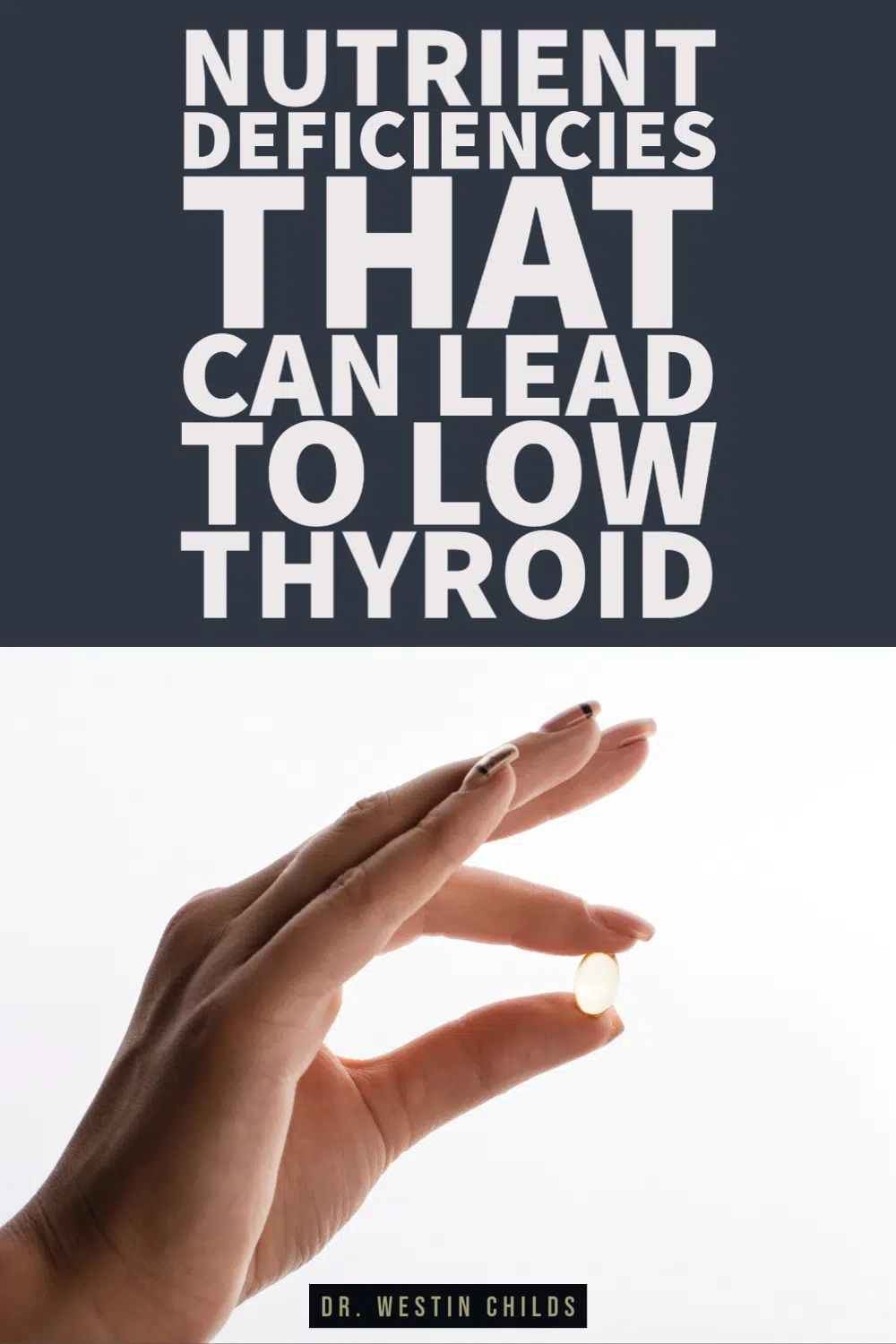
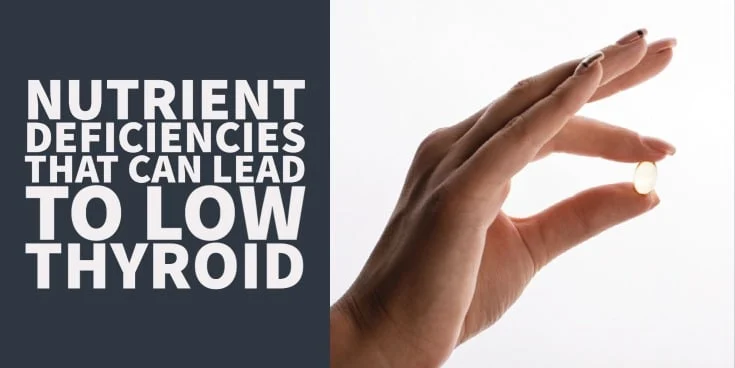

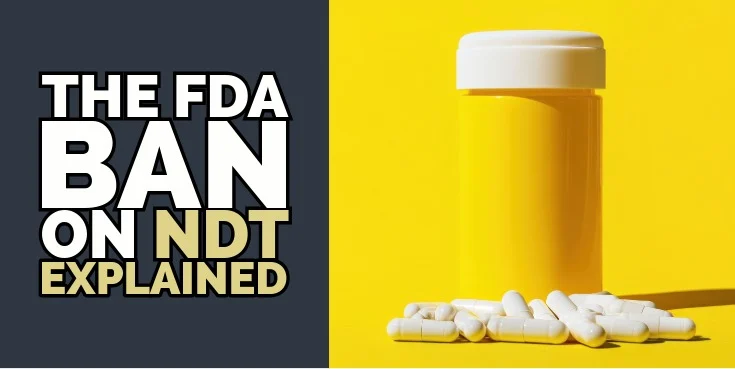
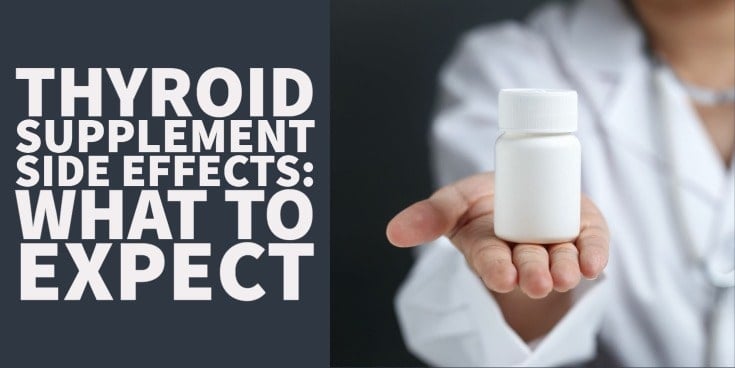
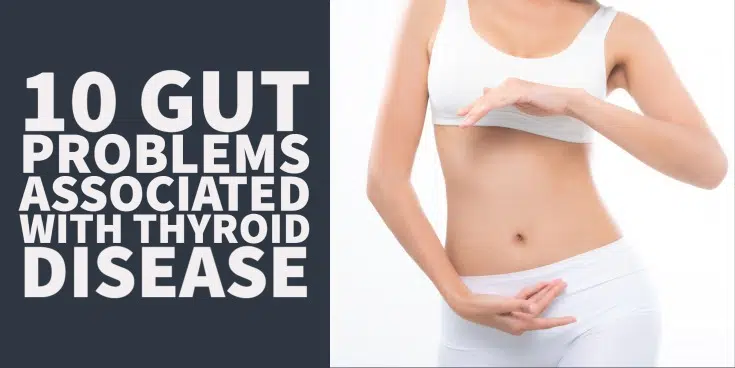
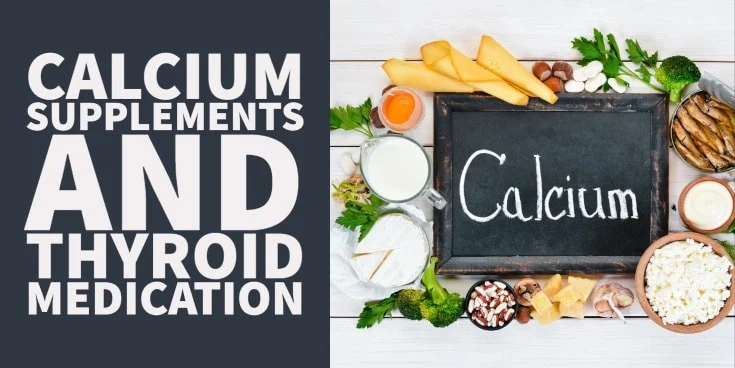
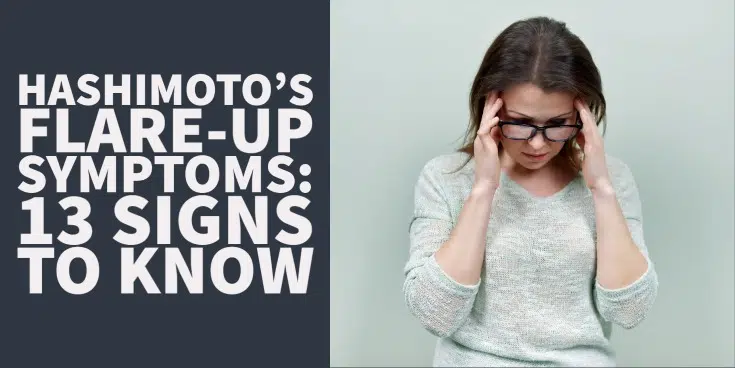
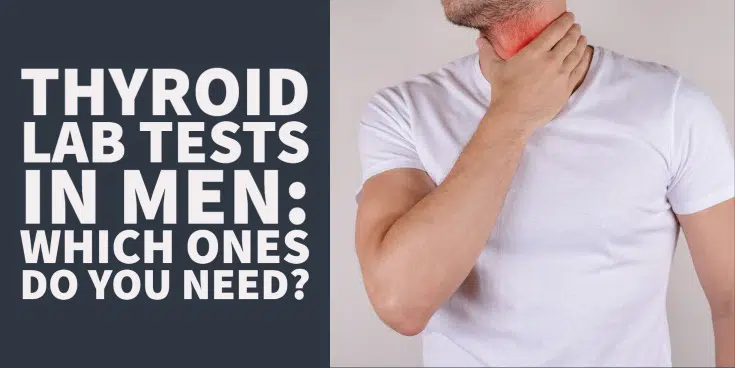

Can I take the multivitamin and the b complex together? Or would it be too much supplementation? I have a lot of hair shedding and just starting my journey with a superb doctor that is truly trying to help me.
Hi Meticia,
Yes, they can be used together. It’s really difficult (if not impossible) to overdo it on most B vitamins because they are water soluble. It’s been my experience as well that thyroid patients tend to be more deficient than the average person so higher doses tend to work better for them.
Dr. Childs, please do a video with Morley Robbins. He has found some interesting links between copper and the thyroid.
Hi Donna,
Thanks for the suggestion! I will look into them as a potential option for a guest on my podcast.
I was advised by my provider to begin taking ACES (vitamins A, C, E, and selenium) based on the results of a nutrition evaluation of blood and urine. I began taking Carlson’s ACES gelcaps until allergic reactions pointed to a gelatin allergy. (I also have alpha-gal.) The Carlson gelcaps contain beef gelatin.
Do you have a recommendation for selenium, vitamins A, C, and E, that are not in gelcap form? Would a tablet form work as well?
Hi Kathy,
I don’t think you need to use a gelcap form to get the nutrients into your body unless you are in a very specific or unique situation (maybe a situation like gastric bypass or something similar). In regards to supplements that contain those ingredients, you can check out one like this: https://www.restartmed.com/product/thyroid-daily-essentials-thyroid-multivitamin/
Would this list be similar for someone who has antibodies for Graves AND Hashimotos?
Hi Hope,
The list would be different for both Graves’ and Hashimoto’s but many of the nutrients listed here are still important for those conditions.
Hi
There’s a lot of talk in the U.K. on HRT can you do an article on hypothyroidism and taking HRT. Levels and dosage, how it affects the thyroid, how to up the levels if needed.
I’ve been diagnosed with alopecia but it hormonal. My thyroid levels are ok, how does one go about introducing Estrogen what my body has lost and now needs restoring.
Hi Terri,
By HRT are you referring to estrogen and progesterone? If so, I have plenty of articles on that topic already which I would recommend checking out:
https://www.restartmed.com/what-are-bioidentical-hormones/
https://www.restartmed.com/estradiol/
https://www.restartmed.com/progesterone-cream/
https://www.restartmed.com/low-estrogen-symptoms/
https://www.restartmed.com/low-progesterone-symptoms/
https://www.restartmed.com/estrogen-supplements/
Very good post! I take vitamin A 10,000 IU for a week from time to time, e very 3 or 4 months, and I can see a real difference! I noticed a huge improvement in my health since I started taking a small amount of selenium, zinc, tyrosine and iodine every night before going to bed together with my T4. I wake up with a lot more energy and focus!
Hi Teresa,
Glad to hear you are feeling better and thanks for sharing what worked for you!
I’m also interested in any links between thyroid and low copper. There isn’t much that I’ve been able to find online.
Hi Tracy,
I am planning on doing an article on copper, thyroid function, and zinc in the near future. I have a lot of other topics to get to but that is one that is higher on the list.
I am so desperate for help and just keep getting sicker and sicker.
I can’t swallow pills. I take Nexum for hyital hernia and reflux, have autoimmune thyroid disease graves but had almost full thyroidectomy, not on any medication.
Very low ferritin (9)
Very low magnesium
It’s a puzzle that sucks and I am slowly dying.
Liver is now acting up and gallbladder and no one does anything but tell that and says get a colonoscopy which I have been unable to complete 5 times because I can’t tolerate that much luquid and I am already hypomagnesium .
The magnesium I take makes me lethargic, and doesn’t help me poop
Hi Gailen,
When was the last time you had a complete thyroid lab panel? https://www.restartmed.com/thyroid-tests/
That’s the first place I would start. Typically, thyroid patients with only half of a thyroid gland do much better when taking thyroid medication. I have a case study of someone in that exact situation you can read more about here: https://www.restartmed.com/weight-loss-naturethroid/
This article was sooo eye opening. Thank you so much for your e-mails. You are giving me so much education. You are probably the only e-mail sender, whose e-mails I actually read and pay attention to. The work you have put into explaining thyroid health is incredible. Before I discovered through a blood test that I have issues with my thyroid, I had no clue about hormonal imbalances, and the importance of the right nutrients. I was extremely lost, once I decided not to take hormonal replacements to my hypothyroidism and was at the same time having really bad symptoms. Extreme pains and tiredness, it was starting to turn into a real physical condition. I am taking now supplements and natural vitamins that are supporting my thyroid and other organs, which through a kinesiologist check-up turned out to be weak. I had 5 organs including my thyroid gland and guts not functioning well. As soon as I started taking the right nutrients I started healing, before it was just months and months of suffering and going in circles. I love your education! Thank you so much!
Hi Eszter,
Glad you find the information helpful and happy to hear that you are feeling better as well!
Dr. Child’s,
Thank you for the time, effort, and sincere concern you have for educating people. Your emails are very informative. Too bad I can’t find a doctor like you.
Hi Love cia,
I’m glad you find them helpful and it can be frustrating looking for a doctor but don’t give up! Eventually, you will find one and it will work out.
I’m afraid of taking an iodine supplement. How much iodine do you recommend as a daily supplement? Is it different for different thyroid conditions? (Diagnosed w Hasimotos 20 something years ago.)
After recent ultrasound, a new, local endocrinologist “accused” me of Iodine therapy! Never did any such thing.
Switching from that practice to see Functional MD in a month for bio HRT and thyroid management. Appreciate knowledge gleaned from your posts.
I’ve been taking supplements for a while, since prior to having hypothyroid issues (some added after diagnosis). Some you mentioned I didn’t know about. I’ve been taking AdrenaSense and ThyroSense (on the advice of my naturopath, and they’ve helped. Last year, I added Zinc. I take curcumin for other reasons. Also omega-3, NAC (N-Acetyl-L-Cysteine), and Vitamin D3.
Some food items I have to avoid (anything with gluten), and need to maintain a very low dairy intake, but I do eat a lot of plain air-fried chicken, fish, natural ground beef, tuna, eggs and salad veggies. Less legumes, but some.
My thyroid hormone levels have been the same since 2018 though, and I am still on Levothyroxine 0.125mcg per day.
I have been following you for over a year now, because my own family doctor doesn’t know how to deal with thyroid issues, and we have no one specializing in our area. I so appreciate all your videos and downloadable pdfs, and the articles. They’ve helped tremendously!
Thanks you so much for sharing your knowledge.
Hi JGracey,
Glad you find the information helpful!
Thank you Dr. Childs for the help you have given. I am really confused as I dont know where I am at. I am Hypothyroid and also post menopause and is always feeling not well. I do my Thyroid lab checks twice per year and the results is always good but just not feeling as I should. I don’t know if its the menopause or the thyroid as they have the same symptoms. I am going to take these nutrients and see if I feel much better. I am so frustrated. Thanks much and God bless.
Hi Fay,
It’s possible for you to be normal but sub-optimal. Please make sure you compare your lab tests to the ranges found here: https://www.restartmed.com/normal-thyroid-levels/
I have a growth on my thyroid, a goiter. I don’t want to have it removed surgically. But it is starting to affect swallowing and coughing. I prefer to do things naturally. Will these supplements help with this? Is there a supplement that has all 6 of these ingredients or do I need to find each one separately?
What can you recommend for me? I would really appreciate any help and advise you can give me. Thank you!
Hi Andrea,
Supplements can sometimes help with goiters, but not always, it just depends on the situation. You can find many of the ingredients listed here in this supplement: https://www.restartmed.com/product/thyroid-daily-essentials-thyroid-multivitamin/
Hi, I have been using your supplements for a while and they have made an amazing difference was in reverse T3.( Thyroid Glandular, T3&T2 conversion) I have had a full thyroidectomy 3 yrs. I am about to change meds from Levoxine 75 to Natural Desiccated extract with T3 or a separate T3 slow release capsule- compound chemist(not sure what to choose T3 slow release or justT3). I am hoping the natural extract will relieve some of my symptoms along with a Low GI food eating. Balancing my Low blood sugars has been an issue, although test show perfect blood sugars same with TSH and T3, yet I still have circulation issues in fingers toes tingling lips, shivers & dizziness sometimes, tightness across chest, anxiety, sleeping issues if I haven’t eaten enough good sugars protein, complex carbs and good fats, put weight on easily despite walking 5ks a day and eating well have always been fit and my food choices are good. It appears Low thyroid and low sugars symptoms are very similar. I love reading your articles- I wish sometime to just fly over from Australia to you- to sort it all out and to feel well again. Kind Regards Janine
hi Janine,
Glad to hear it and it definitely sounds like you are on the right track! In regards to medications and dosing, some trial and error will likely be necessary so just pick one and go for it. From there, you can always make changes as needed.